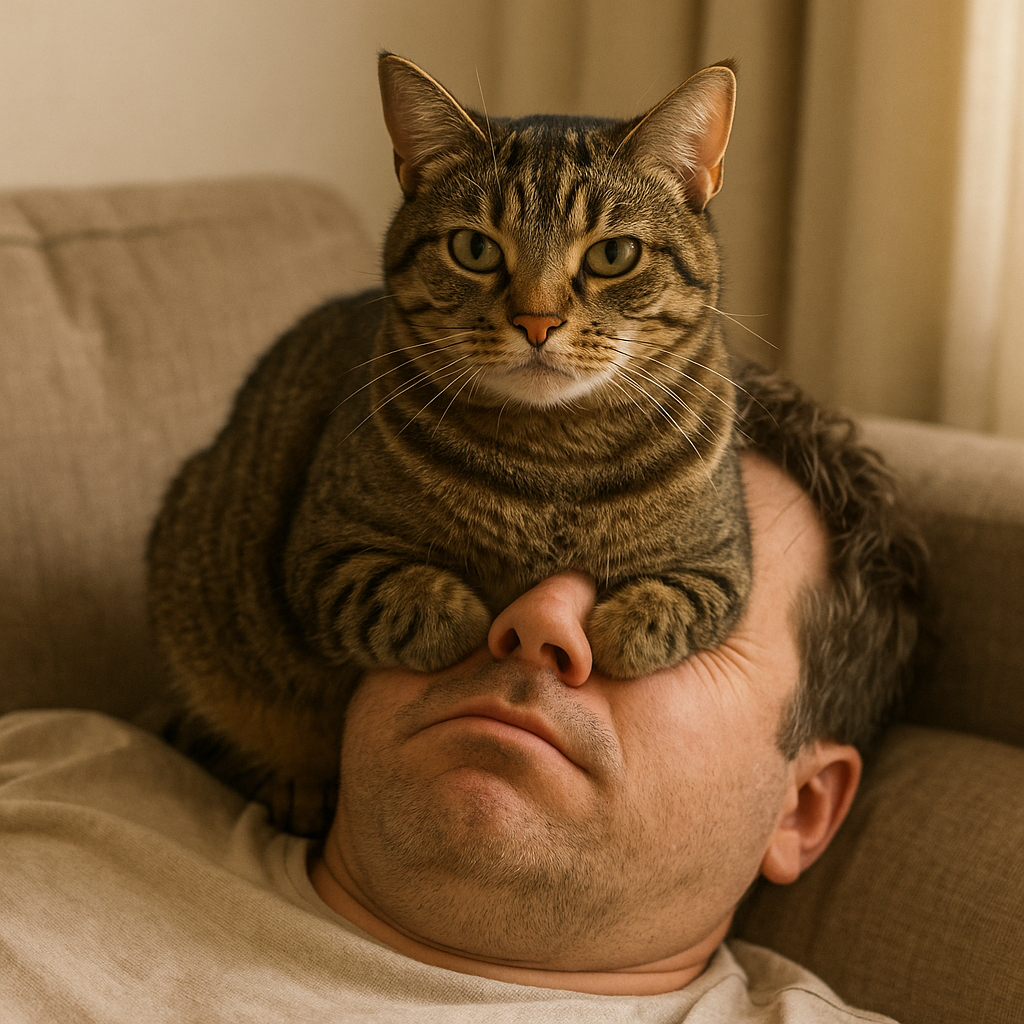
Why do cats stick their butt in your face?
When your cat does this, don’t worry—it’s a good sign. Your cat feels safe with you and is saying “hi” in cat language. This is what it means.

Your cat trusts you
Cats show their rear to other cats they trust.
They do this to people they trust, too.
When your cat points their butt at you, it means:
-
“I feel safe with you.”
-
“You’re part of my group.”
-
“I’m being friendly.”
Not everyone gets this from a cat—it’s a little honor.

Your cat feels safe
Cats hunt, but bigger animals can hunt them, too. So they stay alert most of the time.
If your cat turns their back to you—or even puts their butt near your face—it means:
-
“I feel safe here.”
-
“I trust you to watch my back.”
This is a compliment, not something bad. It shows your cat feels calm and secure with you.

Your cat is marking you with their scent
Cats use smell to say “this is mine.” That can include you!
-
When your cat rubs their head or the base of their tail on you, they leave tiny scent signals (pheromones).
-
This isn’t only about territory. It’s also a way to say hello, show love, and build a bond.
-
While using the scent glands near their tail, your cat might give you a close-up of their butt—especially if they’re on your lap. It’s a good sign.
In short: they’re telling you you’re part of their inner circle.
Your cat sees you as a friend
A cat’s tail shows their mood. The happiest, friendliest moods often show their rear.
-
If your cat walks up with their tail straight up, that’s a greeting.
-
It means they feel friendly, happy, and social.
-
They like you and want to be with you.

What should you do?
Your cat means well. Keep it kind and simple:
-
Stay calm. Don’t scold. They’re saying “I like you,” not trying to be rude.
-
Give gentle pets to the head, cheeks, or shoulders. Skip the rear if you don’t like it.
-
Turn or move them softly. Guide your cat to sit beside you or on your lap facing forward.
-
Redirect the love. Offer chin scratches, a brush, or a toy.
-
Teach a cue. Say “sit,” “down,” or “place,” then reward with a treat or praise when they settle in a better spot. Be consistent.
-
Make a routine. Short play (5–10 min) and cuddle time each day can meet their social needs without the butt-in-face move.
-
Don’t reward pushy behavior. If they keep aiming their rear at you, stand up or look away for a moment. Give attention after they sit nicely.
-
Call the vet if needed. Get help if you notice a strong smell, scooting, lots of licking of the area, swelling, pain, diarrhea, or trouble pooping.
- Quick plan: greet → guide to a better spot → reward. This shows your cat what you want while keeping the bond strong.













